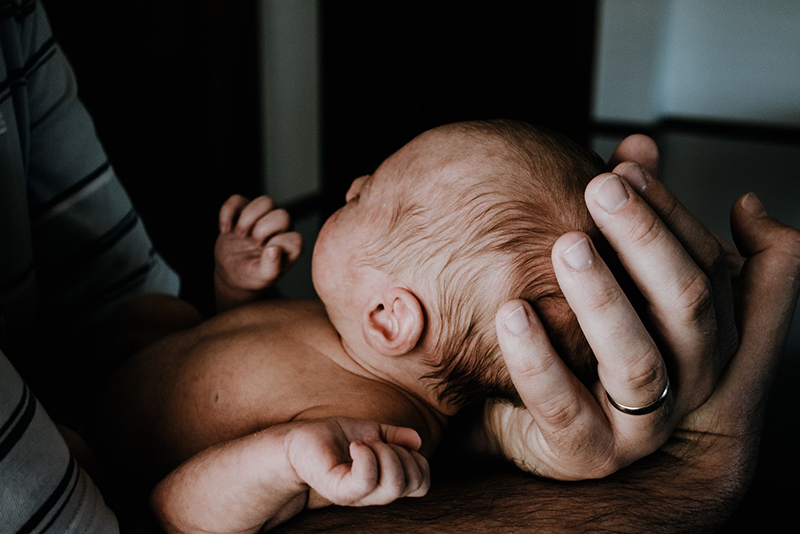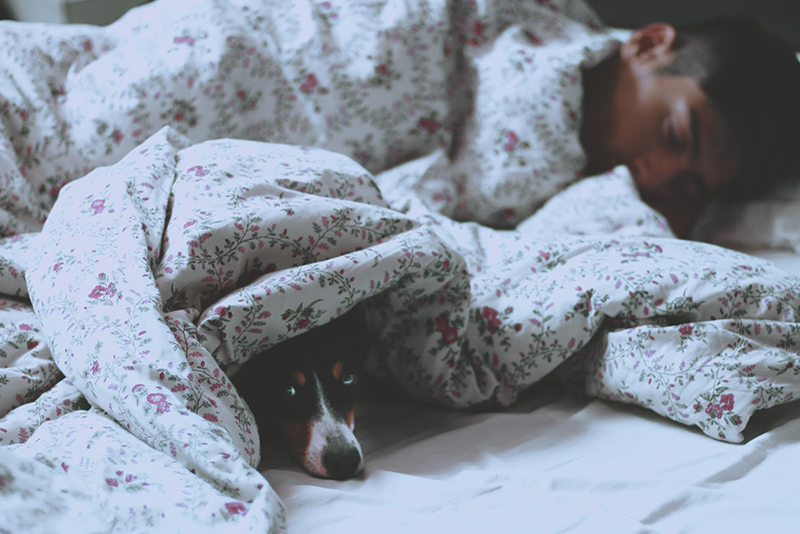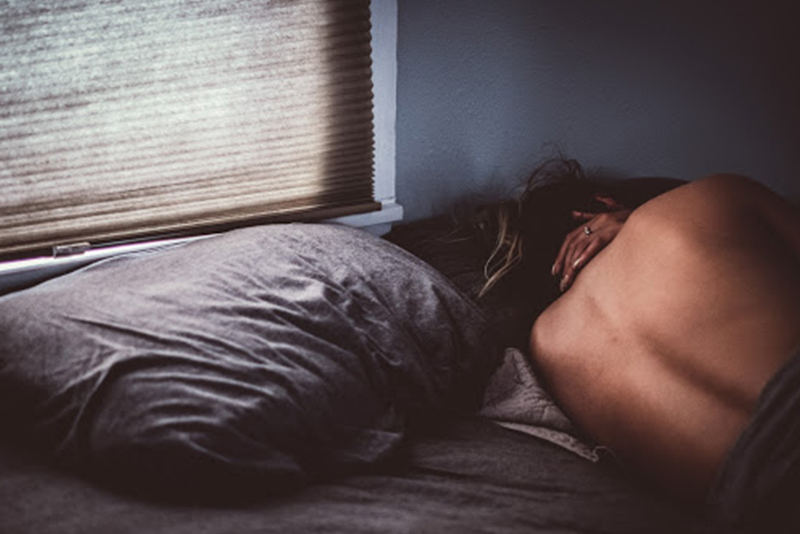How Much Sleep Should You Get – For too many people, a good night’s sleep is a luxury. But that should not be the case. Like a balanced diet and adequate exercise, sufficient sleep and rest are necessary to achieve optimal health and vitality. The reality is many people — especially those in a high-stress job that require long hours — function on not enough hours of sleep. They often rely on coffee or energy drinks throughout the day to offset the tiredness brought on by their poor sleep habits.
Chronic sleep deprivation will take its toll on the body one way or the other. It’s been known to lead to a host of conditions including high blood pressure, heart disease, irregular heartbeat and stroke, just to name a few.[1]

Sleep Ranges Per Age Group
According to the Sleep Foundation, the exact number of hours of sleep you should get will depend on your age and various lifestyle factors.
- A newborn baby, from birth to three months old, need around 14 to 17 hours each day.
- Infants or from four to 11 months will require a little less, 12 to 15 hours. Preschoolers need 11 to thirteen hours.
- School-age children, or six to 13 years old, need nine to 11 hours. Teenagers, from 14 to 17 years old, need eight to 10 hours.
- The average adult needs around seven to nine hours.
- Senior adults need a little less time, around six to eight hours.[2]
Despite this recommendation, it’s important to pay attention to your individual needs. Some people are naturally short sleepers, while others are long sleepers. The body’s circadian rhythm, or the body’s natural sleep wake pattern, is unique to each person. Aside from how much time you spend sleeping, the quality of your sleep matters, too.

What Happens When We Sleep
Some people refer to falling asleep as “shutting down for the night.” That could not be farther from the truth. While sleeping will slow down a person’s physiological processes (it lowers the blood pressure and body temperature and slows down the heart rate and breathing), the brain remains extremely active, possibly even more active than when a person is awake.[3]
There are two main stages of sleep: REM sleep and non REM sleep. The first stage of the sleep cycle is non REM sleep. This is characterized by a light sleep, possibly drifting in and out of wakefulness. At this stage, a sleeping person is easily roused or disturbed. The next stage of the sleep cycle is REM sleep or wave sleep. This is characterized by a deep sleep that is more difficult to wake up from than the lighter non REM sleep. At any given night, the body goes through this sleep cycle multiple times.[4]

Effects Of Sleep Deprivation
What happens when we don’t sleep? The most immediate effect of lack of sleep is reduced brain function, impaired judgment, and memory loss. In short, bad sleep habits will make it hard to focus. Habitual poor sleeping habits may also increase your risk for Alzheimer’s disease. Lack of sleep can also lead to increased hunger and weight gain. A study showed that people who slept for an average of six hours at night were thirty percent more likely to be obese compared to those who slept for an average of nine hours a night. Poor sleep quality can also affect skin health. It can cause puffiness, dark undereye circles and pallor. Most insidious of all, lack of sleep can exacerbate symptoms of depression. Over time, loss of focus and alertness due to lack of sleep is a safety hazard. Many accidents and avoidable disasters are caused by sleep deprivation.[5]

Quality vs. Quantity Of Sleep
Some people wrongly assume that they can catch up on lost sleep by trying to sneak in a nap in the middle of the day or by turning in early and sleeping in late the next day. Sleep debt is not as simple as that. You can’t make up for missed sleep by sleeping in increments. Even one night of poor sleep can throw your circadian rhythm out of whack. It will take a while to recalibrate your sleeping pattern and get back to a healthy rhythm.

Insomnia And Other Sleep Disorders
The quality of your sleep, that is, how well you sleep at night, is crucial to reducing the incidence of sleep related ailments and conditions. Over time, some people will develop sleeping disorders from lack of sleep or poor sleep. Some are serious and life-threatening while others can easily be addressed with the help of a medical professional. Below are only a few examples.
Insomnia
Insomnia is difficulty falling asleep or staying asleep. It can be caused by unhealthy lifestyle choices such as consuming too much caffeine, medications that prevent sleep, or psychological issues like depression and anxiety. Stress is also a common cause of insomnia. Insomnia is highly disruptive. For severe cases, seek professional help.[6]
Sleep Apnea
Not to be confused with loud snoring, sleep apnea is when your breathing stops repeatedly during sleep. When it does, you may involuntarily jerk yourself awake to resume breathing. Even if you’re not aware of what is happening, you’ll most likely feel the effects the next day. Watch out for exhaustion, irritableness, and decreased productivity. Sleep apnea is a serious and potentially life-threatening condition where the brain and the body may not get enough oxygen during sleep.[7]
Jet Lag
Jet lag can occur when a person travels across time zones. This temporary disruption of the body’s circadian rhythm can cause headaches, fatigue and even stomach problems. Your body will eventually adjust to your new time zone in due time, usually in three days. Some people are prescribed sleep medication, in the short term, to help recalibrate their sleeping pattern to their new environment.[8]

Tips For Sleeping Better
A good night’s sleep and proper sleeping habits are definitely something worth aspiring for. Like any habit, it takes practice, discipline and consistency. Don’t take for granted or disregard sleep disturbances.
Keep a set sleep schedule
Aim to sleep on a set schedule as much as you can and make sure you hit the recommended amount of sleep for your age. Again, for the average adult, this is seven to nine hours.
Reduce blue light exposure
Do this by turning off or keeping your phone and any other devices out of sight.
Don’t hit snooze
Set your alarm for the time you need to wake up. Avoid hitting the snooze button repeatedly to try to get in some more sleep.
Dietary changes
Do try to lessen your caffeine and sugar intake, especially late at night. Your body will naturally have a hard time falling asleep when it’s overstimulated.
Lighting
Make sure to dim or turn off the lights in your sleep area to help you relax better and fall asleep faster.
Sleep environment
Keep the area clean and free of clutter so as not to add to your stress. Visually, your room should be soothing and calming, a place of refuge.
Soothing scents
You can also try lighting votive candles or incense to set the mood for a relaxing evening and easy sleep. Some people swear by essential oils, especially lavender.
Upgrade your mattress
For your bed, choose a firm mattress and pillows.
A Last Word
Your quality of sleep can affect your productivity, your mood and your overall sense of well-being. Sleep and rest are meant to be savored and enjoyed and are necessary for a healthy, well-balanced life. If you find that nothing you do is helping you sleep better, seek a professional consult. Stress and anxiety might be a factor. Perhaps the cause may even be physiological. See a doctor for a proper diagnosis.
How Much Sleep Should You Get Resources;.
[1] https://www.webmd.com/sleep-disorders/features/10-results-sleep-loss#3
[2] https://www.sleepfoundation.org/excessivesleepiness/content/how-much-sleep-do-we-really-need-0
[3] https://www.livescience.com/59872-stages-of-sleep.html
[4] https://www.tuck.com/stages/
[5] https://www.webmd.com/sleep-disorders/features/10-results-sleep-loss#1
[6] https://www.medicinenet.com/hypersomnia/article.htm
[7] https://www.helpguide.org/articles/sleep/sleep-disorders-and-problems.htm
[8] https://www.helpguide.org/articles/sleep/sleep-disorders-and-problems.htm

